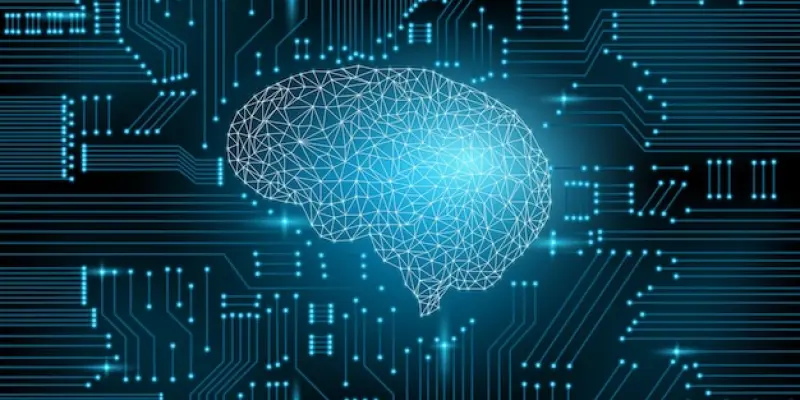Artificial Intelligence stands at the forefront of a transformative wave reshaping the very fabric of business and society, signaling profound changes on multiple fronts. As AI technology propels forward, it challenges traditional human roles and capabilities with unprecedented vigor, marking an era of accelerated innovation. This rapid evolution is not merely a technological advancement but a paradigm shift influencing economic landscapes and societal norms. Businesses worldwide are re-evaluating their strategies, grappling with the potentials and pitfalls of integrating AI into their operations and services. The pursuit of real Artificial General Intelligence (AGI) beckons a future where AI surpasses the confines of conventional software enhancements, promising a revolutionary leap in capability and understanding. The anticipation surrounding AI’s impact on various industries compels businesses and societies to prepare for a future where AI becomes integral to everyday life, prompting questions about its implications on global economies and cultures.
The Changing Dynamics in Business and Industry
The infiltration of AI into business landscapes is marked by both dynamic opportunities and formidable challenges, redefining professional roles and industry operations. Companies are increasingly employing AI to optimize processes, enhance decision-making, and drive innovation, setting the stage for a competitive edge in the marketplace. Within the consumer market, key players like OpenAI are scrutinized for their strategic approaches, reflecting the volatility and vulnerability inherent in the reliance on consumer-oriented products. As organizations vie to introduce agentic AI workers, they aim to convert technological advantages into substantial revenue streams, potentially capturing significant portions of global GDP. This strategic endeavor is characterized by fierce competition among industry leaders, each striving for technological supremacy.
Entities such as Anthropic, renowned for their technical proficiency, are poised at the helm of AI revolutionizing workforce paradigms. Their model epitomizes quality and technical prowess, underscoring a shift towards AI professionals replacing traditional human roles across a broad spectrum of fields, from medicine to law. The emergence of open-source organizations further invigorates this shift, democratizing AI technologies and broadening accessibility. These developments prompt businesses to continuously adapt, emphasizing the urgency of strategic adaptation in response to AI’s pervasive influence.
Societal Shifts and Cultural Transformations
AI’s transformative impact extends beyond business, permeating societal structures and influencing cultural dynamics. Across the societal spectrum, AI-induced changes challenge established norms, instigating new forms of relationships and interactions. The concept of AI-human romantic relationships and robotic companionship is no longer confined to speculative fiction; it edges closer to reality, altering human population dynamics and traditional relational paradigms. As AI takes on roles requiring deep knowledge and cognitive agility, humans adapt to positions focused on verification and nuanced interaction.
Reactions to AI’s societal integration spawn novel communication protocols, mitigating risks associated with AI-deepfaked scams—an adaptive response to burgeoning security challenges. The cultural ramifications are palpable, with debates surrounding AI competing for prestigious accolades like the Nobel Prize, illuminating the complex interplay between human achievement and AI potential. This adaptation to AI’s societal presence represents both an embrace of technological innovation and a reconciling of traditional cultural narratives, setting the stage for an era of normalized automation and AI integration.
Geopolitical Implications and Future Considerations
On the geopolitical stage, AI’s transformative journey influences strategies and alliances, reshaping global power dynamics. Major technological players, including China, exemplify strategic ambitions focused on technological dominion, reflecting an intense race towards AI superiority. China’s ongoing five-year plans underscore a commitment to technological advancement, paralleling America’s defense strategies emphasizing cybersecurity amid looming threats from rivals like China and Russia. Prominent firms like Huawei and Nvidia are acknowledged for their pivotal roles in accelerating AI development, navigating complex geopolitical terrains. The competitive landscape among nations spurs innovation, yet evokes cautionary reflections on AI’s influence over global governance, security, and ethical standards. As nations strategically embrace AI, the discourse surrounding ethical AI deployment intensifies, advocating for balanced approaches that harness AI’s potential while mitigating societal and geopolitical risks. Future considerations emphasize the necessity of adaptive strategies, recognizing AI’s transformative power capable of redefining societal norms and professional landscapes on a global scale.
Preparing for an AI-Driven Future
Artificial Intelligence (AI) is at the helm of a transformative wave that is reshaping business and society. It heralds deep changes across various dimensions, challenging traditional roles and human capabilities with unprecedented intensity. The era of accelerated innovation we’re witnessing isn’t just a technological advancement; it’s a paradigm shift that significantly influences economic landscapes and societal norms. Thus, businesses globally are re-evaluating strategies and grappling with both the potential benefits and inherent risks of integrating AI into their operations and services. The pursuit of true Artificial General Intelligence (AGI) aims to propel AI beyond simple software improvements, promising a revolutionary leap in capability and understanding. As AI’s impact grows across industries, it urges businesses and societies to prepare for its increasingly integral role in daily life. This echoes critical questions about AI’s implications on global economies and cultures, pointing towards a future where its role is not just prominent but essential.

